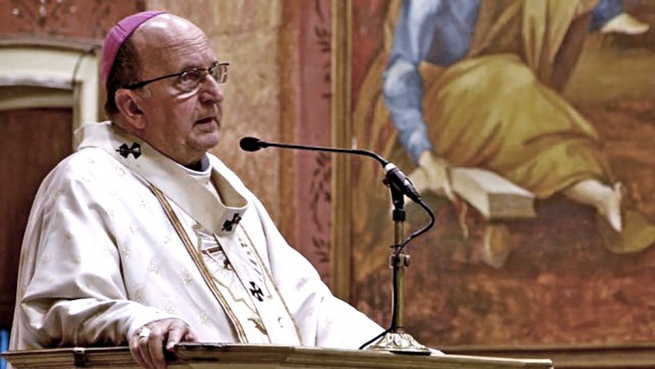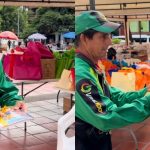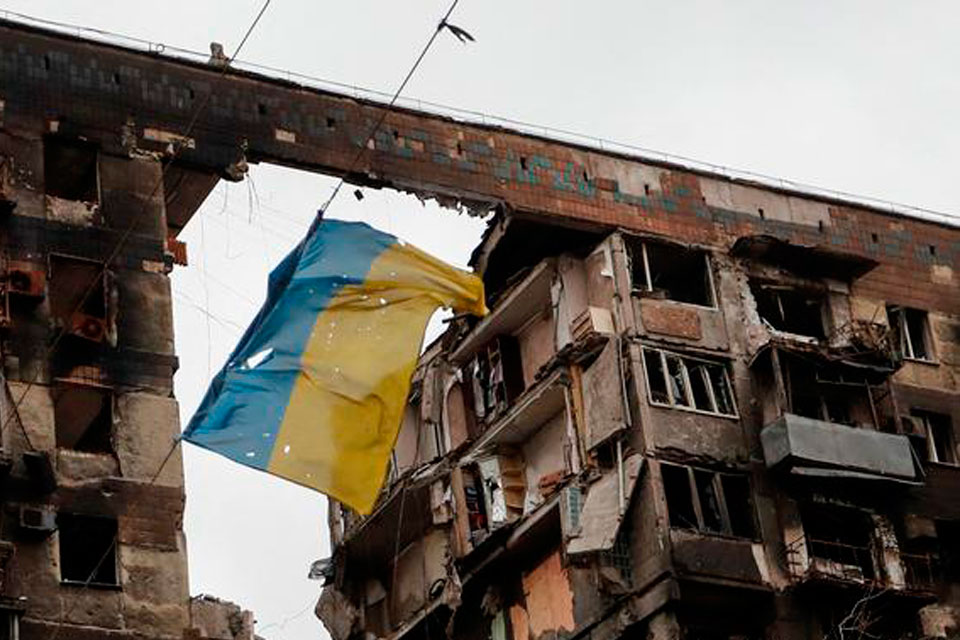The Archbishop of Salta, Monsignor Mario Cargnello, was denounced for gender-based violence by the nuns of the Convent San Bernardo de Carmelitas Descalzas, together with two other religious, for which he was prohibited from approaching the residence of the sisters and must present himself to a hearing on May 3, sources linked to the case reported on Tuesday.
“The situations of hostility, which occurred from 1999 until last Monday, led the mother superior to decide to make this complaint, because the Discalced Carmelites need to live without violence, take care of their physical integrity, respect their beliefs and the autonomy of the monastery. ”, expressed the lawyer Claudia Zerda Lamas.
The lawyer, who sponsors the denouncing nuns together with José Viola, assured in statements to FM Aries that “the harassment” of the archbishop of Salta on the nuns of that convent is “unbearable”.
This is a complaint filed last week with the Office of Family and Gender Violence of the Salta justice, which fell to the Court of Family and Gender Violence 3, in charge of María Carolina Cáceres Moreno, whose cover is “Monasterio San Bernardo de Carmelitas Descalzas against Cargnello, Mario Antonio; De Elizalde Martín, for gender-based violence”, although the complainants added the priest Lucio Ajaya.
The judge provisionally ordered Cargnello, De Elizalde and Ajaya to refrain from exercising acts of violence of all kinds and in any form against the mother prioress, María Fátima del Espíritu Santo, and two other nuns mentioned in the complaint. and the other sisters of the monastery.

Besides, the three denounced were prohibited from approaching 300 meters from the Convent Saint Bernardpolice custody was ordered and a court hearing was set for May 3.
The lawyer Eduardo Romani appeared last Monday before the Salta justice as a representative of Cargnello and as he told Télam He has not yet had access to the file, so he is “waiting for it to be enabled.”
The defense of the nuns
Zerda Lamas revealed that “this complaint in the ordinary justice of Salta has already been the subject of another complaint in the Holy See”, but pointed out that “canonical time is different from real time”.
“Obviously this is under treatment,” he explained, after which he pointed out that there was “an apostolic visit” in which the visitor “is one of those denounced, Monsignor Martín Elizalde.”
“It was a difficult visit, where the nuns have felt that their judgment has been broken, that they have wanted to minimize the situation of violence they are experiencing,” he said, adding that they await “what the Holy See will say” about this case.
For the lawyer, the treatment received by the nuns by the highest authority of the Catholic Church of Salta generates a “enormous suffering and damage for many years”practically since the arrival of the current archbishop in Salta, when there was a change in the treatment between the convent and the ecclesiastical authorities.

For this reason, he considered that the decision to make the judicial complaint responds to the need to “ensure that the Archbishop is treated in conditions of dignity and respect.”
The lawyer omitted to refer to the specific facts denounced “because she understands that gender issues touch on very personal and sensitive aspects of both the complainants and the accused”, and clarified that “the Carmelite sisters do not have cell phones because they are cloistered nuns”, when refer to the rumors that indicate that there are videos that support what was denounced.
Zerda Lamas limited herself to explaining that it is “verbal aggression, others that have gone a little further, threats”, after which she maintained that the mere fact of “threatening or avoiding the possibility that the convent could be intervened, without reason why course, and that they lose their home, their natural habitat”, already alters the life of the nuns, who are governed by the “Carmelite rules”.
He also commented that there are 18 nuns residing in the San Bernardo Conventlocated on the first street of Caseros street, in the center of the city of Salta, whom he considered “cheerful people, who transmit optimism and hope, dedicated to prayer and work in the framework of silence.”

















